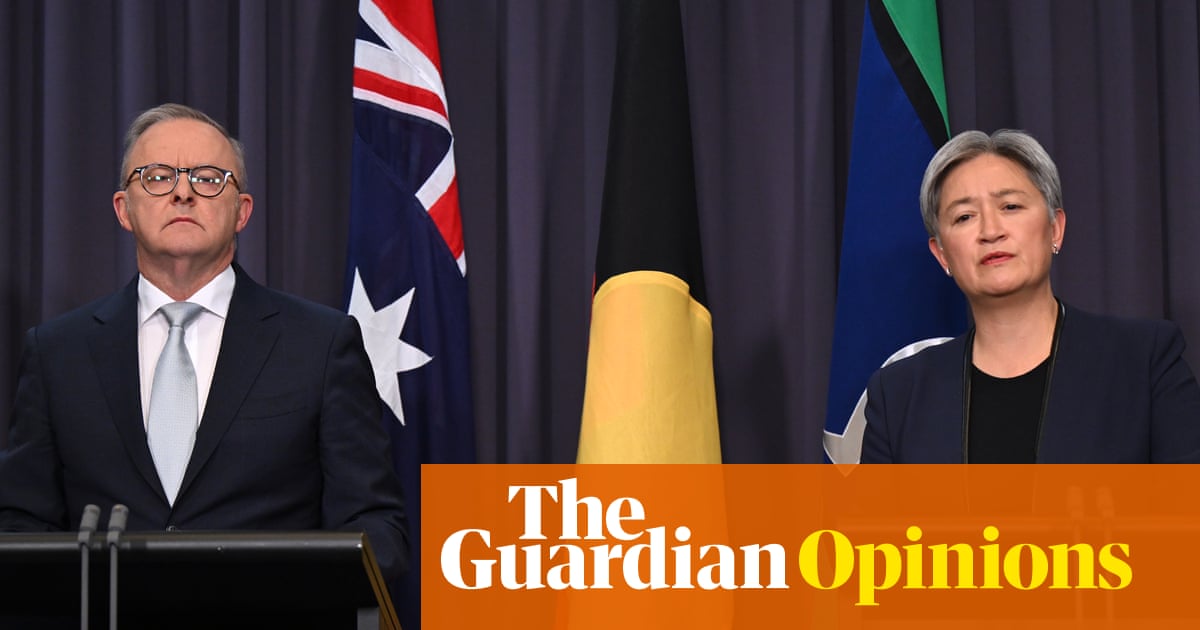The bully of the Middle East, as President Trump calledIran, has had its nuclear enrichment facilities bombed by the world’s premier bully. The irony is not lost on anyone, except perhaps Australia. In an especially anodyne statement, a spokesperson for the Australian government echoed American claims that “Iran’s nuclear and ballistic missile program has been a threat to international peace and security”, and backed in Trump’s admonition that “now is the time for peace”.
Little Sir Echo whimpers again, this time through a mouthpiece.
Steering a careful course between the prevention of nuclear proliferation and full-throated endorsement for attacking Iranian nuclear facilities, the government has now said Australia supports the US strikes on Iran’s nuclear facilities, maintaining that Iran must not be allowed to possess atomic weapons. “The world has long understood we cannot allow Iran to have a nuclear weapon. This action is being taken to prevent that. So, we support action to prevent Iran getting a nuclear weapon,” the foreign affairs minister, Penny Wong, said.
For all their sermonising and sanctimonious moralising, successive Australian governments are selective in their advocacy and support for the “international rules-based order”. The rules really matter when Russia attacks Ukraine. They don’t seem to matter as much when America launches a massive “shock and awe” airstrike against Iraq, as it did in 2003, or assembles125 bombers and supporting aircraftto obliterate alleged strategic targets across Iran, as it did just two days ago.
The UN Charter established a new international constitutional order after the appalling genocides and slaughter of the second world war. It ordained that security is a function of law – law based on the axiomatic proposition that human beings have value and dignity by virtue of their shared humanity. Agreements, conventions, treaties and a variety of other instruments enshrine the rules to which nations adhere that value fundamental human and political rights as the bedrock for both prosperity and security. There’s not much of either in the Middle East right now.
Nor is there much legality.
Claims of “clear and present danger” are easy to make. They are significantly more difficult to prove, as President George W Bush discovered in 2003, and as the US director of national intelligence, Tulsi Gabbard, and President Trump have demonstrated once again. Faith is no substitute for fact.
Let there be no mistake: Iran’s leadership is dangerously inflexible and stubborn, destabilising the Middle East for generations through the calibrated use of proxies expert in terrorism and other forms of asymmetric warfare. Israel’s leadership, particularly under Prime Minister Netanyahu, is equally inflexible and stubborn, combining irregular warfare – assassination in particular – with the more conventional application of military force. As the destruction of Gaza amplifies daily, it does so seemingly without compunction or respect for the basic rights of Palestinians.
And in all of this, America perseveres with its longstanding preference for brawn over brain, destruction over diplomacy.
“Israel has the right to defend itself” is the mantra that both legitimises and normalises indiscriminate slaughter. Iran, it would appear, does not have quite the same right. Whereas Israel, a nuclear weapons state with the delivery systems to match, acts pre-emptively and opportunistically against its perceived adversaries – Palestine, Lebanon, Syria and Iran – its neighbours enjoy only the right to sue for peace. And in the case of Iran, Trump called for “unconditional surrender”, though to whom was not quite so clear.
Sign up toBreaking News Australia
Get the most important news as it breaks
after newsletter promotion
Trump’s decision to attack Iran takes the Middle East into a dangerously dystopian universe of prolonged chaos and pain. Casuistry excepted, there is not a shred of legal argument for America’s actions. That reflects a fundamental dynamic that underpins the maelstrom that is now the Middle East: it is a battle of wills conducted by pig-headed narcissists obsessed by power and their own personal political survival at the expense of their nations’ security.
So the seeds have been sown for self-perpetuating instability and irreconcilable difference in the Middle East until the inevitable conflagration forces whoever might survive to the negotiating table to establish new constitutional arrangements. Countless people will die in the interim.
As for Australia, Wong said the US had not requested our assistance in future military operations, and that she “wouldn’t speculate”. But eventually Australia will have to decide between principle and prostration. An erratic and temperamental Trump is once again poised to take the US into a war that will end in failure. It is a pity that the Albanese government is not yet ready to assert and advocate the moral dimension of the “good international citizenship” that Labor governments love to talk about.
Allan Behm is the author of No Enemies, No Friends and The Odd Couple (both by Upswell) and special adviser at The Australia Institute, Canberra
